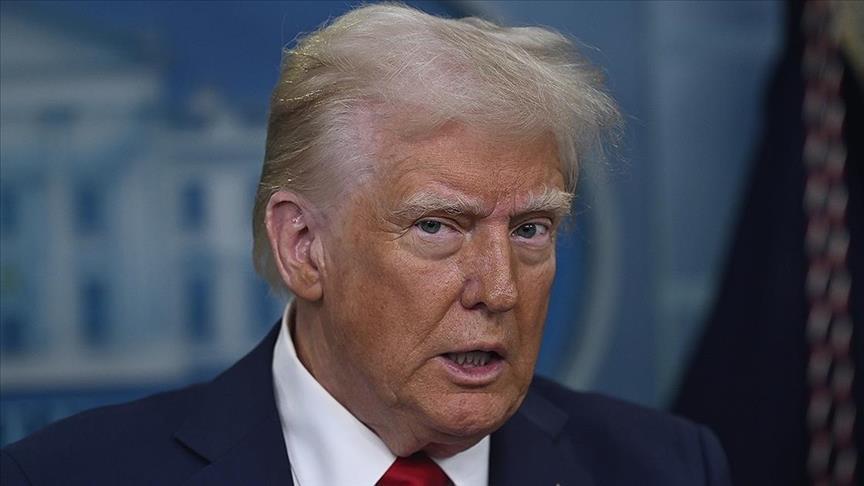Experts view US President Donald Trump’s $350 billion energy purchase call, following the EU tariff increase, as turning energy into a ‘political instrument.’
During his first term, Trump initiated tariff wars with China, leading to a turbulent four years in US-China relations. In his second term, he has now set his sights on the EU alongside China.
Kicking off the second season of tariff wars, Trump announced reciprocal tariffs on April 2—describing it as a ‘great day’ for the US—and signed an executive order to that effect.
The tariffs, affecting over 180 countries and regions, range from 10% to 50%.
For key US trading partners, the rates were set at 20% for the EU, 34% for China, 46% for Vietnam, 32% for Taiwan, 24% for Japan, and 26% for India.
European leaders voiced opposition to the tariffs, prompting Trump to declare that the EU could avoid them by importing $350 billion in energy from the US.
Trump announced on Wednesday that he raised tariffs on China to 125%, imposed a 10% reduced tariff on 75 other countries, and suspended the tariff rate announced on April 2 for 90 days.
Since the Russia-Ukraine war, the EU—facing a natural gas supply crunch—has turned to liquefied natural gas (LNG), becoming the largest customer for US LNG over the past three years.
According to data from Kpler and the Institute for Energy Economics and Financial Analysis (IEEFA), Europe imported 105 billion cubic meters (bcm) of LNG in 2021, 167 bcm in 2022 and 2023, and 135 bcm in 2024.
US LNG accounted for 28% of these imports in 2021, 43% in 2022, and 46% in both 2023 and 2024.
– ‘Trump’s energy bill to EU is unrealistic’
The EU now faces Trump’s ‘buy energy or pay tariffs’ strategy, with experts deeming the $350 billion energy bill unrealistic and a sign of energy being politicized.
Tamas Pletser, oil and gas analyst at Erste Investment, told Anadolu that they will definitely use this as a ‘bargaining chip.’
Pletser suggested that the Trump administration could offer to reduce tariffs on EU car exports in exchange for increased purchases of American gas and crude oil.
Highlighting Trump’s aim to balance the US trade deficit with Europe, Pletser said, ‘He demanded that Europe buy $350 billion worth of US energy products. That is an extremely large and unrealistic target.’
Even in a scenario where the US redirects all its LNG capacity and oil exports to Europe, it still wouldn’t meet the EU’s entire energy demand, Pletser noted.
‘Even combined, LNG and crude oil would amount to $198 billion, which is far below the $350 billion Trump is asking for,’ he said.
Pletser also pointed out the bottlenecks in European energy infrastructure, emphasizing that meeting more than 50–55% of natural gas demand with LNG is not feasible.
‘This doesn’t change the picture, because US LNG is unlikely to be cheaper than pipeline gas or other LNG sources. In fact, relying heavily on a single source is a risky strategy. I prefer a strong diversification of supply,’ he added.
– ‘Trump’s move could pose energy security risks’
Francesco Sassi, research fellow at RIE Energy Geopolitics and Markets, noted that the White House’s envisioned $350 billion implies a massive volume of oil and gas trade over a long period, especially following the price drop in both commodities after the tariff war.
Sassi recalled that China had previously committed to purchasing US gas and oil but failed to deliver on those promises.
‘The most important takeaway from Trump’s proposal is the looming politicization of the energy interdependence between the US and the EU,’ he said.
After what happened with the EU-Russia dependency, he said, this could have severe global consequences for energy security and the decarbonization of energy systems.
From the perspective of the LNG market, Sassi emphasized that both politically and economically, US allies now feel growing uncertainty and distrust.
‘In this scenario, it will become more difficult to sign long-term LNG contracts, exactly the opposite of what the White House is hoping for,’ he concluded.

